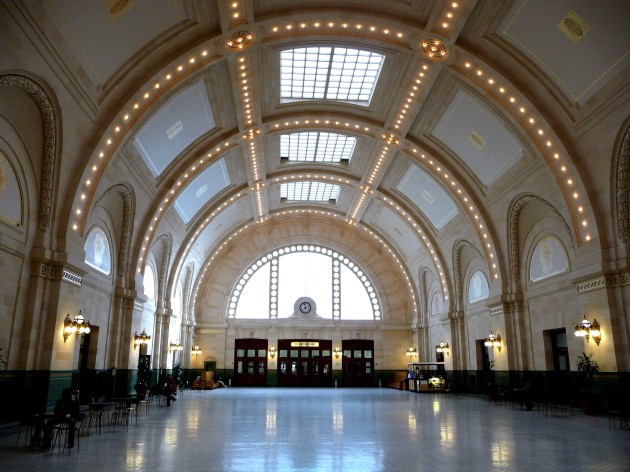It’s Going to Be All Right: Rest In Peace, Grandpa
June 1, 2011 17 Comments
My grandfather, Albert Russell, passed away yesterday morning at age 83. Grandpa was a protector. He would come to the defense of anyone, not only those whom he knew and loved, but also complete strangers. He didn’t merely understand other people’s pain; he felt it. If you were lonely and lost in life, unsure of where to go or what to do with yourself; if you found yourself in the depths of an existential funk and could see no way out of it; when Grandpa furrowed his brow, grimaced at your words, and let out a quiet sigh, you knew that he suffered with you. And when he squinted his eyes, laid his hand gently on yours, and said, “You know, I think. . .,” you knew that he wanted to help you and that wise words would follow.
Grandpa’s empathy gave him an intimate understanding of the suffering that pervades this world, yet somehow, instead of subtracting from his hope for a better future, where fewer people suffered and more found contentment, his unique insight into the human condition impelled him to make the world better and to believe in the feasibility of the endeavor.
He once told me that he wished the young understood that things improve, that there’s time for things to get better. So often youth feels like this binary experience of joy or sorrow, love or hate, hope or pessimism, and when we’re young we seem to leap back and forth from state to state. Grandpa was telling me that there were shades in between these states, that usually we would find ourselves in these grey, kinda/sorta regions of emotion and well-being, and that fluctuations were inevitable and natural. He told me that when you’re young, if you can figure out how to be patient, most of what ails you will melt away in time, and that while you have to do your part to press onward, you also have to learn to let the healing process play out on its own, to allow time a chance to flow, for its current to wash away your troubles or lay down new layers of experience on top of old ones. You have to live and have faith in life itself.
Grandpa, everything about you said, “It’s going to be OK.” And you were always right. I say that all the time to my students: “It’s going to be OK. You’re going to be all right.” But I don’t convey the reassurance half as well as you did. My students may be flipping out over losing a pencil, and even in this mild sort of circumstance I sometimes fail to calm them down and convince them that everything is all right; pens work just as well. You didn’t need to say anything at all to make everything seem right with the world. You embodied the message. Everything was all right because you were you.
You knew how to soothe. You knew how to see into a person’s soul and ease her worries, alleviate her fears with the calm tone of your voice and the melodic cadence of your speech, with its thoughtful pauses pregnant with quiet wisdom. You evoked patience in every expression, every gesture; in the way you punctuated sentences with your hands and in the way you raised them and lowered them as if you were synching your words to some beautiful rhythm that pervaded the world and that only you could hear. Maybe that’s why you told such gripping stories. Maybe the world was your metronome, and you set your words to its perfect beat.
We’re told often that we live in an age of decline, in which morals are eroding, families are fracturing, and life is losing meaning and purpose. But how can that be so when people like my grandfather lived, when people like him loved their children, who in turn loved their own children? Can we really credit ourselves now with short-circuiting the transfer of wisdom and love from one generation to the next that has seen us through thousands of years of catastrophes and challenges to our existence? How can we be as lost as we think we are when we descend from people like my grandfather (or your grandfather, your grandmother, your mother or your father), who saw a world war that killed tens of millions, lived through the threat of nuclear annihilation, and fought for racial and gender equality?
I love you, Grandpa. I miss you. Thank you for showing me how to be a good, compassionate man, and for raising my wonderful mother with Grandma. You inherited from your parents and the community that brought you into this world strength, compassion, and kindness. You carried these gifts with you through life, and with them you brightened the lives of everyone who knew you. You passed these gifts on to your children, and they to their children, and we, your grandchildren, will strive to do the same. The world isn’t broken; it’s going to be all right. You were right, Grandpa. You would know.



